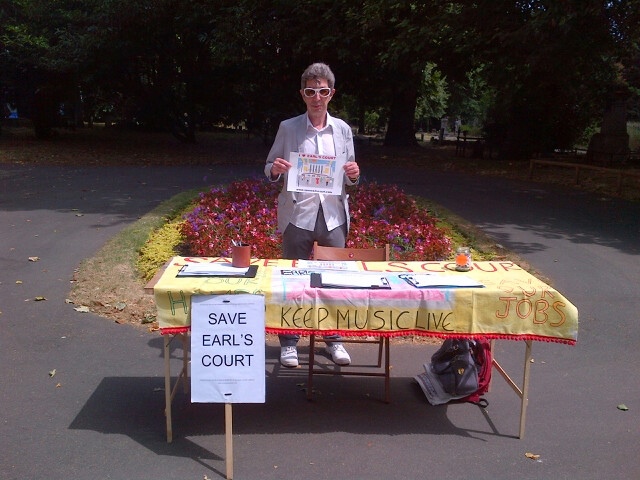Monday, 29 July 2013
Press Release From The Save Earl's Court Campaign.
Thursday, 25 July 2013
Motorists win landmark judgement against cash-strapped council which hiked parking charges as stealth tax to fund other services.
Monday, 22 July 2013
Redundancy payments for Olympic executives cost £2.8m
Tuesday, 16 July 2013
Bogus taxi driver from Stoneleigh jailed for two years
Monday, 15 July 2013
Putting The London Cab Back On Point
Saturday, 13 July 2013
Palestra Diversions: Mid July-October.
Diversion routes for Union Street one-way working Planned for 5 August – 5 September 2013
Thursday, 11 July 2013
RMT: Open, Transparent And Member Led: A Driver's Charter. Part 3
Thinking about Joining?
Wednesday, 10 July 2013
Boris Bike Ballot Result - Solid Yes Vote For Strike
RMT: Open, Transparent And Member Led: A Driver's Charter.
RMT: Open, Transparent And Member Led: A Driver's Charter.
Monday, 8 July 2013
[RMTLondonCalling] Issues for RMT members
RMT Lonodn Taxi Drivers recently lobbied Parliament in support of the policies we want the Law Commission to adopt in its review. The union has also produced a glossy newsletter for taxi drivers. If you would like a bundle to give out – whether you are a cabbie, or whether you are willing to give them out to cabbies – please email me you name and address and I will send some to you. More on taxis here:http://www.rmtlondoncalling.org.uk/londontaxis
Lillie Bridge
Boris Johnson has approved a scheme that will allow demolition and redevelopment in the Earls Court area. Lillie Bridge Depot could be replaced by posh flats - but London Underground has not even consulted properly with your union about protecting members' work! More information here: http://www.rmtlondoncalling.org.uk/taxonomy/term/319
London Overground cuts conductors
Following the government’s announcement of a 12.5% cut in TfL’s funding, we will have to battle to defend jobs and services and oppose the cuts. London Overground has announced that it is scrap conductors – and RMT has announced that it will fight this! More information here:http://www.rmtlondoncalling.org.uk/lorol
Brian Munro Cancer Fighting Fund
Brian’s fund has already raised half of its £45,000 target! To follow its progress, and make a donation, click here:http://www.rmtlondoncalling.org.uk/BrianMunroCancerFightingFund
Yours in solidarity
Janine Booth
London Transport Region representative
RMT Council of Executives
@JanineBooth
www.rmtlondoncalling.org.uk
Sunday, 7 July 2013
Petition to Save Our Royal Mail
I'm proud to work for the Royal Mail, I think it's a great British institution and it provides a vital service for communities across the country. But right now minister's are preparing to privatise our Royal Mail with no guarantee that the services we rely on will be protected.
I cover three delivery routes in Devon everyday supporting local businesses and residents. For some older residents I might be the only person they see all day and it's good for them to see a friendly postman saying hello.
If the Government sells Royal Mail then the services that many people take for granted will be cut. The daily delivery service could stop -- meaning some rural areas will only see their postperson a few times a week. The price of a stamp could go up, local post offices could close and the private companies might start charging much more to delivery to rural areas. People will be left isolated, UK businesses will be affected and jobs will be at risk.
Royal Mail has gone through many changes over the last few years -- our hours have changed, start times have been adjusted and we've been called to take on more work. It has been hard at times to keep up with the demands. But I'm really proud of how we have coped. Reports show that the Royal Mail business is in a strong place -- all the changes and hard work is paying off. Yet the Government is paying millions to the banks to sell off the Royal Mail.
Government ministers have the power to make sure Royal Mail services are protected -- from our regular delivery service, to the price of stamps, to our jobs. My union, the Communications Workers Union is working with a coalition of other organisations to protect the Royal Mail. I hope my petition will also show the huge the public support out there for the Royal Mail. Ministers have to listen to voters, if enough of us tell them we want the Royal Mail services to be protected they will have make clear guarantees -- after all it our still our Royal Mail!
So please sign the petition and help Save Our Royal Mail.
By Darren R.












